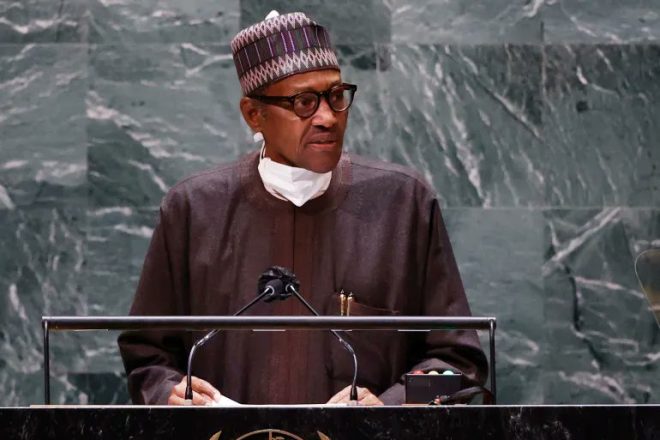
Obituary and Cause of death news:
Former Nigeria President Muhammadu Buhari Dies at 82
Former Nigerian President Muhammadu Buhari has passed away at the age of 82 in London. His death marks the end of an era for Nigeria, where he served two terms and played a significant role in the country’s political landscape. Buhari, known for his leadership during challenging times, left a lasting impact on governance and economic policies. His leadership was characterized by efforts to combat corruption and improve national security. The news, shared by AllofGhana on Twitter, highlights the global response to his passing. For more details on Buhari’s legacy and contributions, read the full article here.

Muhammadu Buhari, the former president of Nigeria, died in London at the age of 82. Read more: https://t.co/XBcsloOYIP pic.twitter.com/P8SkoOvuFh
- YOU MAY ALSO LIKE TO WATCH THIS TRENDING STORY ON YOUTUBE. Waverly Hills Hospital's Horror Story: The Most Haunted Room 502
— AllofGhana (@AofGhana) July 14, 2025

Muhammadu Buhari, the former president of Nigeria, died in London at the age of 82. Read more: https://t.co/XBcsloOYIP pic.twitter.com/P8SkoOvuFh
— AllofGhana (@AofGhana) July 14, 2025
Muhammadu Buhari, the former president of Nigeria, died in London at the age of 82. Read more: https://t.co/XBcsloOYIP pic.twitter.com/P8SkoOvuFh
— AllofGhana (@AofGhana) July 14, 2025
### Muhammadu Buhari: A Life Remembered
Muhammadu Buhari, the former president of Nigeria, passed away in London at the age of 82. This news has sent waves of sadness throughout Nigeria and the global community. Buhari’s legacy is complex, marked by both his military rule and subsequent democratic presidency, which reshaped Nigeria’s political landscape.
### The Early Years of Muhammadu Buhari
Born on December 17, 1942, in Daura, Katsina state, Buhari’s early life was steeped in the rich traditions of Northern Nigeria. He joined the Nigerian Army and quickly rose through the ranks, eventually becoming a major general. His military career laid the groundwork for his future in politics, where he first took power in a coup in December 1983. Under his leadership, he implemented strict policies aimed at combating corruption and fostering economic growth, though they were often controversial.
### A Shift to Democracy
After being ousted in a coup in 1985, Buhari spent several years out of power. However, he made a remarkable return to the political arena in 2015 when he was elected president under the banner of the All Progressives Congress (APC). His administration focused on anti-corruption measures and economic reforms. Despite facing numerous challenges, including security issues related to Boko Haram, Buhari’s tenure was marked by a dedication to improving Nigeria’s international standing.
### Buhari’s Impact on Nigeria
Many remember Muhammadu Buhari for his strong stance against corruption and his attempts to revitalize the economy. His administration made significant strides in the agricultural sector, leading to a decrease in food imports. However, his presidency was also met with criticism, particularly regarding human rights issues and the handling of protests, such as the #EndSARS movement.
### The Legacy of Muhammadu Buhari
As we reflect on the life of Muhammadu Buhari, it is essential to acknowledge the multifaceted nature of his legacy. He was a leader who, despite his controversies, aimed to unify a diverse nation. His efforts to combat corruption and improve Nigeria’s infrastructure will be topics of discussion for years to come.
For those looking to understand more about Buhari’s life and presidency, you can read about the [latest updates](https://t.co/XBcsloOYIP) and the reactions to his passing.
### Remembering Muhammadu Buhari
As news of his death spreads, many Nigerians and global citizens are sharing their memories and opinions on the impact Buhari had on their lives. From his military days to his presidency, he left an indelible mark on Nigeria. His journey reflects the struggles and triumphs of a nation that continues to evolve.
In the wake of this significant loss, it’s crucial to engage in conversations about how Buhari’s policies and leadership will shape Nigeria’s future. His commitment to national development may inspire the next generation of leaders to strive for a better Nigeria.
Buhari’s story is one of resilience, leadership, and a relentless pursuit of progress. His contributions will be remembered, and his passing will undoubtedly spark discussions about the future of Nigeria in a rapidly changing world.
